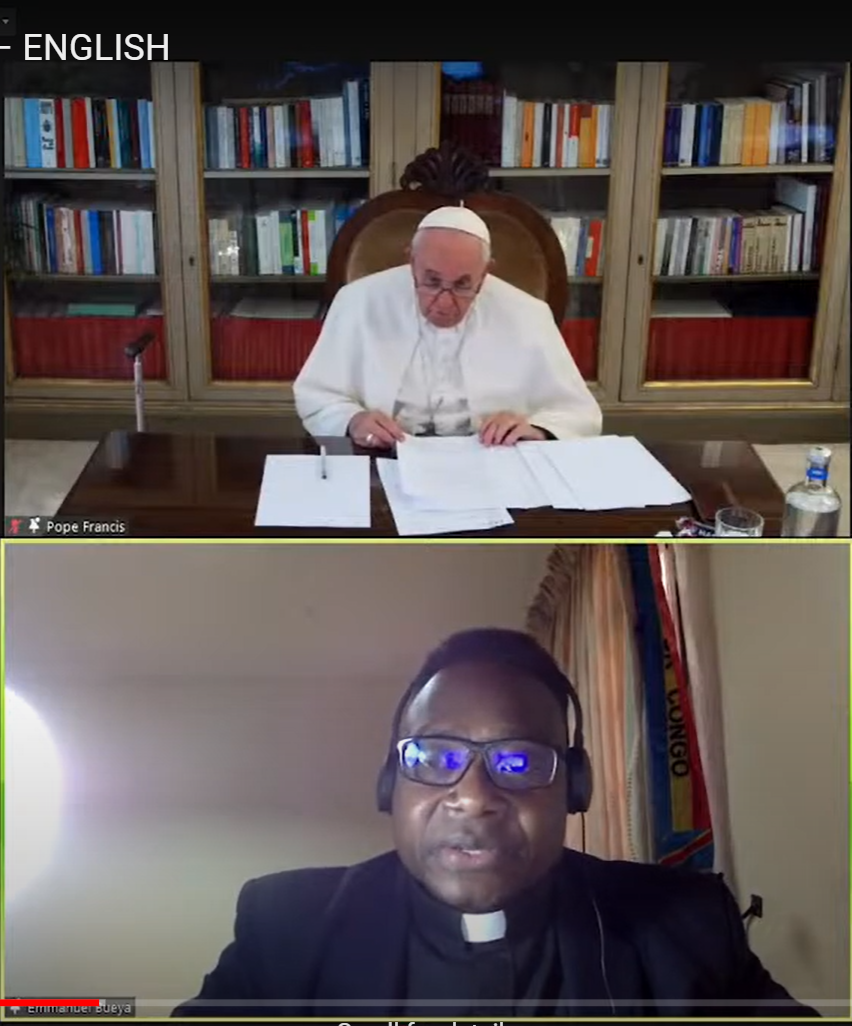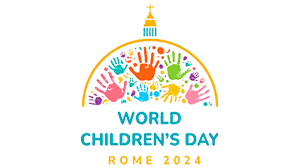VATICAN: Organize and Battle Those Raping the Earth, Pope Francis to African Youth

Elizabeth Asasha
His Holiness Pope Francis has urged African youth to engage their roots with the Ubuntu spirit in fighting the litany of problems that continue to plague and disadvantage young people throughout the continent.
In the first-ever papal virtual encounter with African students on All-Saints day Tuesday, November 1, 2022, the head of the Roman Catholic church gave audience and guidance to the students representing 34 Catholic institutions of higher learning as they shared their experiences and the difficulties that young people in Africa face.
“You are the roots, and we don’t want your roots to be individual: we want you to be united so that your roots can turn into a tree which in turn can bear fruits.” the Holy Father Said in the follow-up to the February 24 dialogue with students from North, South and Central America.
In response to worries about problems brought on by environmental degradation and resource depletion, Pope Francis underlined the need to “really think of how horrible it is to rape the earth just as it is to rape a woman” citing the grave damage inflicted on nature by multinational corporations.
“We are Raping the Earth because we want to dominate it; because we want wealth and that is a very harsh thing to think about.” Pope Francis told the African students urging them to counter ecological imbalance as apostles of the earth by “battling those who want to rape the earth.”
“We are aware of the environmental debt we are leaving to the future generation, who is going to pay that debt?” he posed.
In the 90-minute virtual encounter with students dubbed, “Building Bridges Across Africa: A Synodal Encounter Between Pope Francis and University Students,” young people sought the pope’s wise counsel in addressing issues of Education, Social Inequality, Exploitation of Natural Resources, Terrorism, Spiritual, Youth Political and Social Exclusion, Global Health Inequality among other painstaking issues that young Africans endure.
The pope drew attention to the continued dependence of African countries on their previous colonizers and urged young people to make the most of their youthful years to pursue true independence.
“You also have a savage history of colonialism; the colonialists continue to exploit your resources underground to further their development so it was a partial independence which is not independence at all.” He noted.
Regarding women’s vulnerability and propensity for societal abuse, the Pope agreed with Clevine Kavira, a student from the Democratic Republic of the Congo (DRC), and urged young people to “rebel to that so that we can truly achieve the freedom and dignity of women.”
“Women are more often protagonists of pain in Africa, they are often underestimated, and subject to violence,” he said, “Women aren’t meant to be used, they give life to the people and are capable of working together to make a difference.”
The Pope encouraged his young audience to work to strive to free themselves from any form of slavery that prevents their full participation in society by discussing the issue of youth exclusion and the lack of professional insertion into the fundamental pillars of societal progress, terming youth exclusion as the death of a country, “Young people have to be involved socially, politically, religiously, culturally, intellectually now, we can’t wait for tomorrow.”
In response to the question “How can you help us young people in Africa to realize our dream of ending wars, poverty, hunger, semi-permanence of refugees, and displacement of so many young people in our African mother Land?” posed by Davis Ampereza from Uganda, the Pope called for concerted efforts to alleviate the problems which continue to impoverish Africa.
Pope Francis challenged the students to unite and engage their elders in finding unique ways to counter the insecurity menace in Africa.
“It is isn’t easy to counter banditry; you have to be cautious, active, firm in your hearts and be alive to the fact that you cannot do it alone you have to join forces and be organized,” he added, “Learn from your elders by seeking their wisdom and suggestions to find guidance.”
Pope Francis’ speech was dominated by the theme of reflection, organization, working together, and walking together to reach an all-inclusive participation, which is at the heart of the Synod on Synodality.
 “Organize yourselves, help one another organize because if you stay on your own you will end up being defeated but if you remain united you will struggle together, suffer, persecuted but you will ultimately triumph.” Said the Pope.
“Organize yourselves, help one another organize because if you stay on your own you will end up being defeated but if you remain united you will struggle together, suffer, persecuted but you will ultimately triumph.” Said the Pope.
He also foregrounded the church’s dedication to keeping colleges and schools open to everyone without discrimination, noting that “previous oppressive governments closed down schools and universities, leaving young people without a chance to learn,” referring to this as “a way of subjugating the youth.”
Regarding social identity, one of the most divisive topics among young people, Pope Francis urged them to stay anchored in and continue to live out their national cultural identities.
“You weren’t born out of magic; you have a history and roots, and young people cannot mature if they don’t cherish the roots they inherited from their families and nations.”
The youth appealed to the Holy Father to forge connections between the youth of the north who participated in the first dialogue in February, and them to amplify concerns on social justice, accountability, and transparency in the management of African resources.
Sr. Leonida Katunge, a member of the Congregation of St. Joseph in Mombasa, Kenya, and the country’s national coordinator of the Building Bridges Initiative, led a team of Kenyan youth representatives in engaging Pope Francis on Ubuntu, Education, Youth Inclusion, and Professional Insertion.
Catholic prelates across the world sent messages of solidarity to the Holy Father thanking him for taking an interest in the problems facing young people in Africa.
The Holy Father commissioned the youth to spread the message to their communities, parishes, and universities and work together in response to the demands of time as the virtual assembly ended with final exultation and papal benediction.
Fr. Emmanuel Bueya, the Project Lead at the Pan-African Catholic Theology and Pastoral Network, moderated the zoom meeting, which had participants from Kenya, Zambia, Nigeria, South Sudan, Ivory Coast, the Democratic Republic of Congo, (DRC), Cameroon, Congo-Brazzaville, and Zimbabwe. It was a product of concerted efforts by the Pan-African Catholic Theology and Pastoral Network, the Pontifical Commission for Latin America, the Vatican’s Dicastery for Communication, the communications department of the General Secretariat of the Synod, the Center for World Catholicism and Intercultural Theology at DePaul University and Loyola University Chicago.


